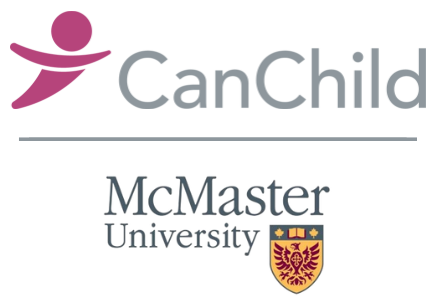Ontario
Relevant Legislation
Legislation refers to those Acts or bodies or a body of law that codifies how a law operates and is used. Below we have listed a number of acts in Ontario that address children and youth with a neurodevelopmental disorder and their families.
Legislative Assembly of Ontario: Bill and Lawmaking
Accessibility for Ontarians with Disabilities Act, 2005, S.O. 2005, c. 11
Ontarians with Disabilities Act, 2001, S.O. 2001, c. 32
Ontario Disability Support Program Act, 1997
Bill 77, Services for Persons with Developmental Disabilities Act, 2008
Bill 109, Taxation Amendment Act (Equipment Purchased for Persons with Disabilities), 2008
Audiology and Speech-Language Pathology Act, 1991, S.O. 1991, c. 19
Relevant Policies
Policy is how legislation or a law is put into action. Social policies address issues of the health, safety, and wellbeing of the members of a particular society such as health care and education. Below we have listed a number of policies in Ontario that address children and youth with a neurodevelopmental disorder and their families.
Opportunities and Action: Transforming Supports in Ontario for People Who Have a Developmental Disability
- Ministry of Community and Social Services, May 2006
- Plain language version
The Passport Program & Guidelines
- The Passport Program was developed for young people with developmental disabilities who require supports in transition to adult services.
- Ministry of Community and Social Services, Revised June 2011
Policy Directives for Service Agencies
- These policy directives are tied to The Services and Supports to Promote the Social Inclusion of Persons with Developmental Disabilities Act. 2008
- Ministry of Community and Social Services
Thriving Communities: A Strategic Direction for the Ministry of Community and Social Services
- Ministry of Community and Social Services, Fall 2005
Case Management Services
Case management services in Ontario include:
- Agencies that provide screening and assessments of your child's development
- Agencies that offer specific services and supports based on the unique needs of your child as they grow
- Agencies that help you coordinate the services and supports that your child may need, such as the Community Care Access Centre
Ontario's Healthy Babies Healthy Children Program
- Offers screening and assessments of children's development from 0-6 years of age.
Child Care Programs for Children With Special Needs
Assistive Devices Program
- Funded by the Ministry of Health and Long-Term Care
Easter Seals Ontario Incontinence Supplies Grant for Children and Youth with Disabilities
Community Care Access Centres
- Funded by the Ministry of Health and Long-Term Care
Programs and Services for Children with Autism
- Funded by the Ministry of Children and Youth Services
- Offers the Autism Intervention Program (AIP) which includes support services for caregivers and Intensive Behavioural Intervention for children with a diagnosis of autism. The AIP is offered via 2 channels:
- Direct Service Option: Supports and intervention are offered at 9 regional service providers by trained professionals
- Direct Funding Option: Caregivers can receive the funding directly and hire their own private service providers (See ABACUS for a listing of private service providers - http://www.abacuslist.ca/)
- Offers School Support Program and Transition Services and Supports for Adolescents with ASD
Income Support
The Ontario government offers several financial assistance programs geared to families of children with disabilities.
Assistance for Children with Severe Disabilities (ACSD)
- Funded by the Ministry of Children and Youth Services
Ontario Child Benefit
- Funded by the Ministry of Children and Youth Services
- Financial support for low-income families
Direct Funding Self-Managed Attendant Services Program Disability Resource Centre for Independent Living
- Funded by the Ontario Ministry of Health and Long-Term Care
- Website for Centre for Independent Living in Toronto: http://www.cilt.ca/funding.aspx
Respite Care
Respite care services in Ontario range from direct respite care providers to funding opportunities for families to find and pay for their own respite care. These respite services are offered through the Ministry of Child and Youth Services (MCYS) and the Ministry of Community and Social Services (MCSS).
Direct Respite Care:
The MCYS offers an Out-of-Home Respite program to provide temporary relief to parents/caregivers of children with special needs. The child must be under the age of 18, living at home and have a physical or developmental delay that requires 24 hour/day care. Families may be eligible to receive up to $3,500/year. For more information, visit: http://www.children.gov.on.ca/htdocs/English/topics/specialneeds/respite/index.aspx
Respite Funding:
- The MCYS offers an Enhanced Respite Funding program for families caring for a child who is medically fragile and/or requires 24 hour/day care. For more information, visit: http://www.children.gov.on.ca/htdocs/English/topics/specialneeds/respite/index.aspx
- The MCYS funds Special Services At Home (SSAH). This fund helps families pay for special services for their child either inside or outside the home. For more information, visit: http://www.children.gov.on.ca/htdocs/English/topics/specialneeds/specialservices/index.aspx
- The MCSS offers the Assistance for Children with Severe Disabilities (ACSD) program. This program provides direct financial assistance to help families manage some of the extraordinary costs of caring for their child with a severe disability, including caregiver respite. For more information, visit: http://www.children.gov.on.ca/htdocs/English/topics/specialneeds/disabilities/index.aspx
- The MCYS and the MCSS fund a program called Respite Services. This service connects families to respite providers throughout Ontario. For more information, visit: http://www.respiteservices.com/
- Respite Services also runs a funding initiative called Family Directed Respite for families of children and youth (under 18) with a diagnosis of autism spectrum disorder living in Toronto. Applications should be submitted before the end of March ?each year. For more information, visit: http://www.respiteservices.com/Toronto/index.aspx?ArticleID=1536&lang=en-CA
It is important to consider that due to high demand, some respite services may have a waitlist. Therefore it may be helpful to call in advance to inquire about wait times and have your name placed on the waiting list if need be.
